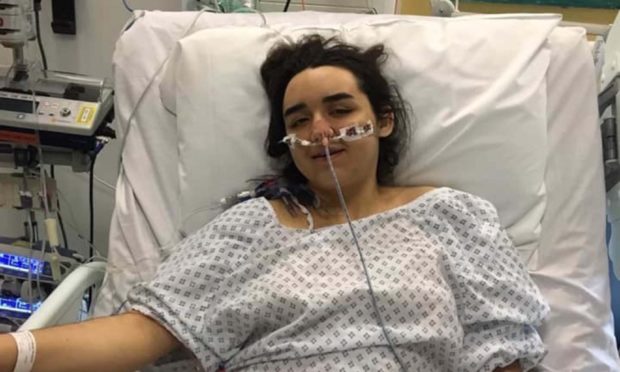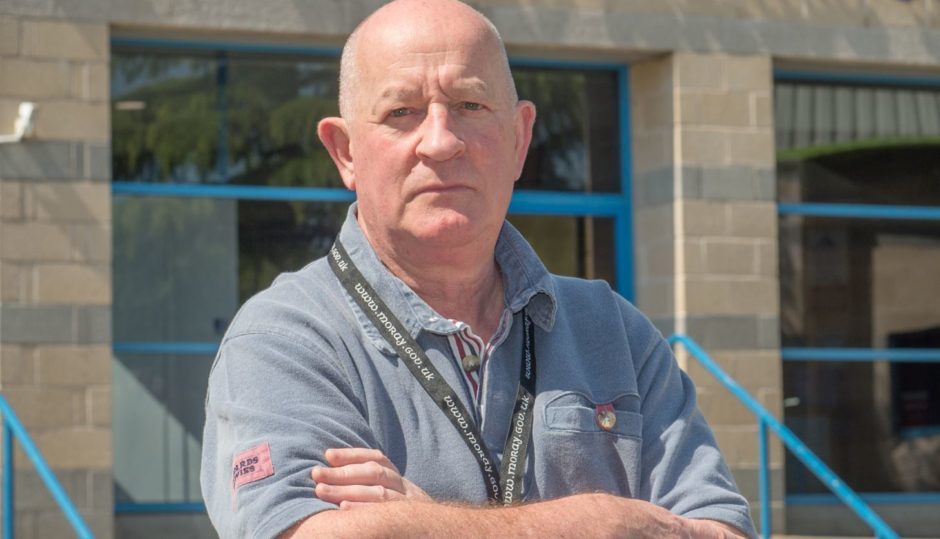The firm behind Aberdeen International Airport is spearheading a “lifesaving” trial which could see organs and medical equipment flown to some of the most remote locations in Scotland.
AGS Airports announced yesterday it will launch the UK’s first medical delivery drone network – with the aim of flying medicines, blood and organs to rural emergency situations more quickly.
Teenager Millie Nicoll, who was frequently rushed from her home in Aberlour to London for an emergency treatment, said the new technology could shave crucial time on emergency organ transportation and increase the chance that critically ill patients get a successful transplant.
Ms Nicoll, who received her liver transplant in 2017, said; “Time is the big thing when it comes to organ donation.
“When I had mine it had to be done within a certain time frame to make sure it had a greater likelihood of success – the longer the organ is out the body the less chance there is of it working.
“It’s all about the time-saving aspect, it’s all about improving the time it takes to get the organ to critically ill patients.
“To know that there is another avenue of delivery is really important.”
AGS has secured £1.5 million in funding from the UK Industrial Strategy Future Flight Challenge Fund and hopes to show how drones can enhance the delivery of medical supplies.
A new consortium group of 14 organisations – including the University of Strathclyde and leading air traffic control provider NATS – have come together to launch the trial project, which will run until spring 2022.
Moray councillor Derek Ross said the plans were an “excellent idea” and could save the lives of people in some of the most isolated areas of the Highlands.
He added: “Anything that saves lives and helps people is clearly a big step-forward – if we can use new technology to do that then so much the better.
“During an emergency situation it can take hours for blood or something like that to arrive by ambulance and now it could take no time at all – it could be a lifesaver.”
Western Isles councillor Kenny John Macleod also said the new technology would be “very much welcomed” in his region.
Derek Provan, chief executive of AGS Airports, said the drone project had the potential to “completely revolutionise” the way healthcare services are delivered in Scotland.
He added: “Not only does drone technology have the ability to speed-up the delivery of critical medical supplies, it could reduce waiting times for test results and, more importantly, help provide equity of care between urban and remote rural communities.”
It is understood the drones will be designed to hold both blood and organs and will be chilled to keep them at the optimal temperature required for an operation once it reaches the patient.
Another aim of the drone technology is to increase hospital to hospital connection of essential medical supplies.
Highlands and Islands MSP, Rhoda Grant said: “As a passionate supporter of blood, organ and stem cell donation, this trial sounds like a really good initiative.
“If adopted after the trial, it could improve the health chances of those who live in rural locations and I look forward to hearing more on this as the trial develops.”
Scottish economy secretary Fiona Hyslop added: “This innovative project will help position Scotland at the forefront of drone technologies to deliver essential healthcare supplies to people more quickly – especially those living remote locations.
“It also demonstrates, once again, that when businesses, universities and public sector work together they can deliver for Scotland and outperform the competition, attracting welcome funding at this challenging time.”

